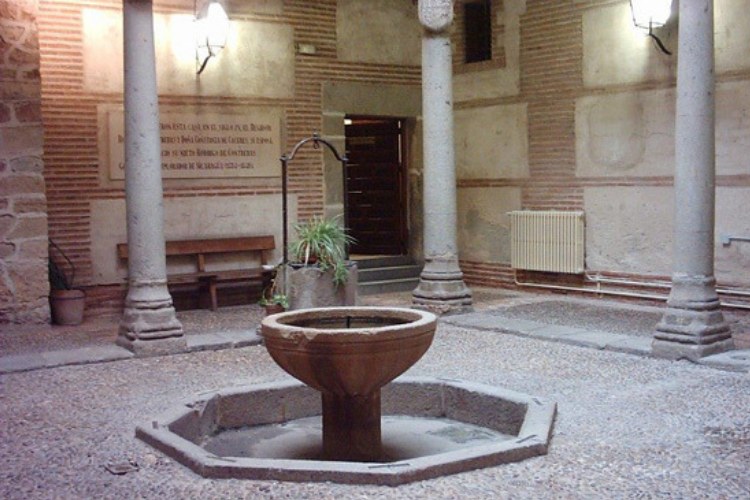
The Aquae Chair in Water Economics, which is the result of a collaboration between the Aquae Foundation, the Aquona Foundation, and the Spanish National Distance Education University (UNED), is designing an environmental action protocol to measure and analyse water and energy consumption in Castile and León's universities. The aim is for these centres to use water and energy efficiently and thus meet six of the 17 Sustainable Development Goals (SDG).
The Aquae Chair is undertaking a pilot study of nine UNED centres, including that of Segovia, which will hold its 40th anniversary next year. The milestone has been celebrated this academic year by expanding the centre's offering of bachelor's degree studies to 28 qualifications and providing the opportunity to study from Segovia courses such as mathematics, philosophy, physics and chemistry, and disciplines of engineering. At the Segovia centre and the other eight centres, the amount of water and energy consumed by users are quantified. The resulting information will establish the bases for applying this protocol in other universities and in the other UNED centres.
According to Amelia Pérez Zabaleta, director of the Aquae Chair in Water Economics, 'the aims of this project are to establish a protocol for measuring and disseminating water and energy consumption that can be applied in other university centres; analysing the consumption and its determining factors, the opportunities to improve in these centres and potential difficulties; and disseminating the results to raise the awareness of all stakeholders in the university environment'.
The work process is simple: first, information is gathered about the water and energy consumption (and its cost) during the last two years, the characteristics of each centre and the actions undertaken to achieve the SDG, particularly those associated with increasing efficiency in energy and water use. Once these data have been gathered, a statistical and econometric analysis is undertaken to study potential trends in consumption of these resources, the determining factors, the efficiency of centres, the effectiveness of measures implemented to save water and energy and the potential improvement in SDG.
The Aquae Chair in Water Economics will publish on its website all the information and results of this project and will organise meetings with stakeholders in the university environment to present the project and study potential ways of replicating it in their own centres. Currently, Spain has 84 public and private universities, with over 340 buildings.
'The promotion of efficiency in universities is complex as facility users, who are mainly students and staff, consume water and energy but do not pay the costs', stated Pérez Zabaleta.
The 17 SDGs, which are part of the 2030 Agenda, approved at the Sustainable Development Summit in 2015, are a call to action to address the most pressing challenges of the planet. 'To achieve them, many stakeholders must be involved, including universities, where more efficient use of these two resources could have a strong environmental impact, as most are large centres in which consumption levels are very high', said Pérez Zabaleta.
.jpg)

